#we were also between the ages of like 12 and 16 so not exactly rife with devastating additions or tales of loss and grief
Explore tagged Tumblr posts
Text
Thinking about that time when I was pressured into giving my testimony by not only my peers but also one of the religious leaders at my church even though I kept stating I didn't want to and was uncomfortable.
And then when I finally did, the testimony I told was about how I'd learned that not all Christians were good people and about how people had used god, Christianity, and their authority to hurt me and people I loved and how I was having to seperate the way they acted from the beliefs I held and then everyone looked at me like this:
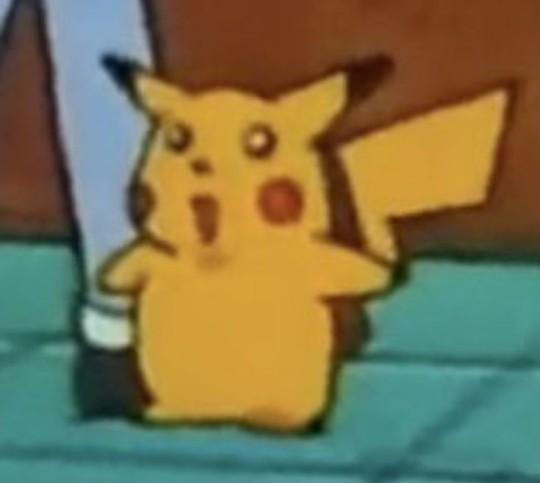
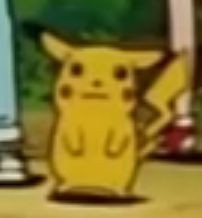
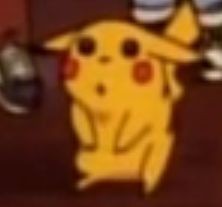
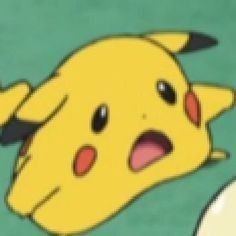
#im not even a Christian anymore and im STILL having to work on this#i want to make sure im being the appropriate amount of a dickhead to people#christian that thinks abusing and harrassing people is okay? hello im hear to be a dickhead to you#but Christian who is simply respectfully and peacefully practicing their religion? i really should not be a dickhead to that person#basically deconstructing and trying ti heal from my trauma so thaf i dont continue the cycle or hive birth to a new one#id like the abuse to end with me#i thought this instance was hilarious though#also for anyone who doesnt know what a testimony is:#im not sure the exact definition but basically you talk about how you found god or something#usually the more grueling and horrible your life was before you converted and the better it was after the more encouraged youd be by others#a very common example was people who had struggled with addiction or alcoholism and then recovering because of their new faith#but i was very uncomfortable because everyone else in the group i was in was born and raised Christian and i knew this#we were also between the ages of like 12 and 16 so not exactly rife with devastating additions or tales of loss and grief#i think the most convincing one and the one that was the least dramatized or confusing was just this one kid#this one kid who talked a out how being born prematurely had affected his life and i think his parents also got divorced#or he had an absent dad or something#anyway moral of the story: dont pressure people to tell you things. its disrespectful and you may find you dont like the story you get
27 notes
·
View notes
Note
4, 5, 16, 18 :)
4. Do you outline before you start writing? If so, how far do you stray from that outline?
I tend not to but I sometimes do. For the two long stories I actually finished, Harry Potter and the Unbreakable Link and Consolation Prize, I got part way through, knew where I was going and then wrote a chapter-by-chapter brief plan for the rest... and then stuck to it. There might be a correlation between doing that and finishing these fics. Huh. Who knew.
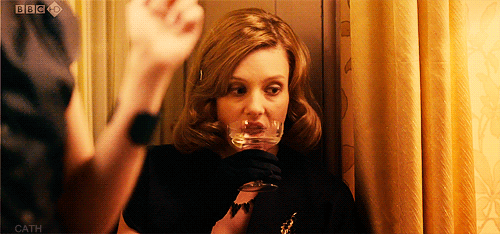
5. What is the perfect environment for you to write in?
My laptop at my table with music playing and nothing else I ought to be doing.
16. What is your most underrated fic?
I know I sound like a broken record, but Consolation Prize. It’s the best thing I’ve ever written and I’m genuinely afraid I will never write anything as good as that. It’s always made me a little sad that readers liked University Challenge more. And like, fair play to them and I’m pleased for that and it’s not like people didn’t like CP, but I guess I just feel so strongly about it. I got really upset once upon a time about it not winning various awards and only being placed. I defined my entire idea of personal success by how popular that story was and it had to win. Otherwise I was just getting a consolation prize! :P I think that’s really unhealthy but it’s how I felt. I cried for such a long time when it didn’t win the most rewards and come first in its categories. (Yes, I needed a thicker skin, but that’s the way it was.) And I still want everyone in the world to read it!
18. What is a line/scene you’re really proud of? Give us the DVD commentary for that scene.
Moving away from Downton, here’s the bathroom scene from Chapter 11 of Growing Beyond.
Rey has gone to her school’s production of Anastasia with the intention of loving it because it was her favourite film back in the orphanage but instead she’s horribly triggered by seeing it for the first time in years. At the interval, she dashes out of the hall to have a breakdown in the toilets.
This is GB’s version of the cave scene from TLJ and is a key moment for both Rey in the film and for Rey in GB. It’s a real turning point for her because it forces her to confront her past and her anxieties about her identity, state what she most wants “show me my parents” and then put her on the track to actually confiding in Ben. In the movie it’s also rife with symbolism connected to the heroine’s journey as she plunges into a dark hole representing return to the womb and the figures in the mirror that are apparently her parents but really look like her and Ben and which end up being her own reflection. Finally, she emerges wet and reborn.
When considering how to transfer this extremely weird and highly symbolic scene to a “realist” modern AU, I tried to find a way of doing it in a way that didn’t jar with the setting while also paying homage to some of the symbolism of the original. Mirrors and water are easy to fit in, so a bathroom made sense from a practical point of view, but also from a symbolic one. The ladies’ toilets are often a place of refuge - who hasn’t cried in a toilet cubicle before? - and they’re also a private place that the rest of the world can’t intrude in, especially men, so (and I know I sound utterly pretentious here and I am half joking with this level of interpretation) you could argue that they are a distinctly feminine location. (Yes, that is arguably absolute bs lbr.)
At first in the bathroom, Rey is desperately trying to hold on and not have a breakdown. She knows this is not the time or place - there are other audience members coming in and out while she sits on the floor of her cubicle. All the while, she’s aware of water - she’s splashed her face, taps are running, toilets are being flushed. Part of this scene is building up Rey’s anxiety so that she can let it loose on her bike ride through the rain afterwards. In the movie, Rey is drenched when she emerges from the cave - she’s not going to get drenched in the toilet, so this is after all a precursor to her mad night ride through the storm.
The scene also introduces a hyperfocus on Rey’s hands.
She raised her head from her arms and stared at her hands, still trembling slightly. Her fingernails were uneven and bitten, her fingers red and chapped from winter cold. She stared at them with peculiar intensity as if she had never seen them before.
This ties into both Rey’s later questioning of who she is, where had her DNA come from, who actually made her, but is also picked up later in Chapter 12 when she’s met Ben in the pub and she doesn’t know what to do with her hands. And of course, leads up to the moment when they touch hands together. So Rey’s hands are important in this chapter and the next.
She emerges from the cubicle and then surveys herself in the mirror, just as she does in the cave, disassociating quite a bit, a way for me to both try to enter into her mental state and also to parallel the extreme weirdness of the original cave scene. As she looks into the mirror, she questions her identity. Rey in the cave says, “Show me my parents!” Rey in the bathroom doesn’t directly say that (because that would be weird) but her thoughts are going along a different line.
This is also where I bring in Rey’s role as a teacher and how that’s tied to her identity in this story. Obviously that’s not in the movie, but it works surprisingly well. Rey reflects on how as a teacher she knows that parental background affects a student’s development - but what about when they have no parents? The connection between Rey and Ben as teachers moulding the next generation and the effects on them of their own parents and teachers and mentor figures is one that works very well in this story. It is named after Yoda’s wonderful quote, after all: “That is the curse of all masters. We are what they grow beyond.” Rey and Ben as teachers must equip their children to grow beyond them but they themselves are unable to move beyond their own pasts and how other people have defined them.
Children is also a theme in SW (or it was until TROS decided it was blind and couldn’t read basic symbolism) and TLJ ended with the image of the force sensitive child. Wish I knew where that was going to go. Anyway, at this point in GB, one of Rey’s students enter the bathroom and she’s forced to act normal. The student is called Daisy. This student is therefore a reflection of or perhaps a hidden part of Rey herself. Daisy is full of optimism and enjoyment of the life she’s leading and full of hope for the future. She confides to Rey that she’s really enjoying her Physics lessons and that’s directly because of Rey’s teaching. Rey encourages her to come along to Science Club, thus expanding her interest still further. Daisy has appeared out of a magical plot hole like a woodland creature in a fairytale to tell Rey exactly what she most needed to hear - that she is doing good work, that she is important, that she can change lives, that she needs to stick at what she’s doing because it is really important. Daisy is also perhaps a reflection of who Rey could have been if she had had encouragement at that age herself, someone who could be herself and have potential that others saw and have someone who believed in her and she’s a sign of Rey’s future importance in leading the next generation (just as she is presented in the films) - how many more Daisys will there be in her career? And while this story is obviously a Reylo romance, Rey’s journey as a teacher and as a symbolic mother of her people (her role in the films until TROS decided to misunderstand its own canon) is still key to her own personal development.
So there you have it. :P
2 notes
·
View notes
Text
Soon I Will Be Invincible - Review
by Wardog
Saturday, 08 September 2007Wardog dusts off her cape and puts her pants on outside the rest of her clothing.~Soon I will Be Invincible is a book written by a loser for losers. Perhaps I'm being slightly unfair but the guy on the back is aggressively bald, over-educated, a computer game designer and has written an over-angsty, over-affectionate novel about superheroes and supervillains. I'm not saying he's not somebody I would love to hang out with but then I'm not saying I'm anything other than a loser too.
I'm a fair-to-moderate reader of superhero comics but I'm no authority on the genre so what I'm about to posit could be either a) so obvious it's not worth stating or b) completely wrong but I do think there's been a bit of a change of focus. Back in the day, it seems to me that superheroes were deliberately presented as everyman figures, community-spirited boys-next-door who just so happened to get gifted with exceptional powers. They seemed to be saying: "This Peter Parker fellow, he could be you, you could be the superhero."
But, of course, moral values have shifted with time. We're no longer all about the wholesome friendly neighbourhood superhero, we want the dark and the driven and morally ambiguous. The people who read comics are, for the most part, people like me (weird, unpopular kids) and, here on either side of the millennium, superheroes - those gifted by pure chance or cruel circumstance to be more attractive, more powerful and more popular than, say, me - are beginning to look rather like the kids who laughed at me at school. Thus you start to pay more attention to the villains, initially just larger than life foils to set against the unyielding virtue of the superhero. But, unlike the hero, villains tends to be self-made men who have progressed down the long road to world domination by dint being more intelligent and more determined than everyone else around them. A familiar motif for weird unpopular kids, I'm sure. The superhero belongs to the realm of the blessed and the accepted. The villain is the perennial scorned and derided outsider. I could take over the world, you know. If I wanted to.
SIWBI takes place on an alternative earth that, although rife with aliens, fairies, superheroes and supervillains, future tech and magic, is recognisably our own. The first person narrative alternates between the point of view of Dr Impossible, brilliant scientist turned supervillain and Fatale, a newly created cyborg who has just been invited into The Champions, a famous group of superheroes, previously led by Dr Impossible's arch nemesis. The plot, such as it is, is typical superhero fare: Dr Impossible escapes from prison and hatches the usual supervillain scheme to knock the planet out of orbit and herald in a new ice-age. Meanwhile CoreFire, the leader of The Champions, has disappeared and the group must to struggle to re-form into an effective unit and deal with the events of their past. As is practically de rigueur these days in anything dealing with people with super powers, the self-consciously trite plotline and the comic book archetypes are there primarily to illuminate the recognisable human dimension to it all. Thus The Champions battle not only Dr Impossible but their own very human failings and, even as he flounces around in scarlet cape and helmet, Dr Impossible angsts over the whether "the smartest man in the world has done the smartest possible thing with his life." It's not exactly ground-breaking but it seems to work well enough and adds pathos to Dr Impossible's obsession with invincibility, not so much to protect him from those with superpowers but to protect him from the very ordinary world that has always excluded and derided him and never loses its power to hurt him.
There's a lot to like here, if you're into that kind of thing. The chapter titles are all stock phrases ("Foiled Again" etc.) and most of the secondary characters are nods to various comic book characters. In fact the whole style and approach of SIWBI is incredibly affectionate and genial, although I do have to wonder what it's doing presenting itself as literary fiction because I can't imagine you'll get it, or indeed see the point of it, unless you're also fond of and familiar with the genre to which it offers itself as an homage. And I know that Grossman wanted specifically to write a book but it seems a peculiar choice to me. His writing style is brisk and punchy, favouring a lot of dramatic statements that would look absolutely perfect floating above a character's head in a speech bubble ("It was time for me to stop punishing myself and start punishing everyone else") but when they're just a just a line on a page they occasionally fall somewhat flat. It's kind of the equivalent of writing POW just like that. In fact, the blatant attempt to "literary-ise" the book, and through association the genre, is one of the more irritating features SIWBI. You like comics, dude, just accept it. Some people will laugh at you, some people will agree, and some people will start to talk about Maus. Regardless, Watchman will never be Ulysses.
As well as occasional stylistic difficulties the narrative jumps between the present and the past in a rather jarring manner. Although it's interesting to get (some of) the backstory, it does completely ruin the pace to the extent that what ought to be an adrenaline-saturated rush towards the final stages of Dr Impossible's plan bog down in a lot of superhero dithering and bickering. For the most part, Grossman is at his best in his supervillain's head. The attempt to give Dr Impossible a reasonably credible psychology for behaving as supervillains behave within the genre (always explaining his plans to the good guys, shrieking I AM A GENIUS at every slight provocation and so forth) does not entirely work because if you were actually capable of such self-awareness one would hope you would also be capable of behaving in a moderately sensible fashion. Nevertheless, Dr Impossible's seemingly unflinching commitment to a role he knows must always be the losing one does generate a certain emotional resonance and bizarrely, as the novel stutters to his inevitable defeat, a certain tragic force.
Dr Impossible, painted with all the narrative garishness a supervillain deserves, is not a subtle character:
For a second I stand at the fulcrum point of creation. God, I'm so unhappy.
But he is complex. Grossman writes him with genuine flair and appreciation. And, one loser to another, it's impossible not to empathise with his broken and lonely desperation:
If you're different you always know it and you can't fix it even if you want. What do you do when you find out your heart is the wrong kind? You take what you're given and be the hero you can be. Hero to your own cold, inverted heart.
Villain he may be but he's probably the arrogant, articulate poster boy for every geeky comic lover out there.
Sadly, the other characters can in no way live up to him, so much so they seem almost like afterthoughts. The Champions bitch and moan like a bunch of sulky teenagers and, even if that was partly the point, it didn't make them easy or pleasant to read about. As for Fatale, new superhero on the block, who narrates with Dr Impossible, she's tedious beyond expression. I had a feeling that, as a woman, she was probably meant to be saying profound things to me but her narrative voice is pedestrian at best and offers none of the exuberance or emotional engagement of Dr Impossible's. I skimmed most of the superhero sections.
Even so, Dr Impossible is worth the price of admission alone. If you're even remotely interested in the superhero genre or have ever contemplated world domination while sitting by yourself in maths, you'll probably find something to enjoy here.
PS - Please note the views expressed within the article are solely those of the author. Ferretbrain as a whole does not believe Mr Grossman is a loser.
Themes:
Books
,
Sci-fi / Fantasy
~
bookmark this with - facebook - delicious - digg - stumbleupon - reddit
~Comments (
go to latest
)
Arthur B
at 18:32 on 2007-09-08I'm sorry, but there's only room for one "arrogant, articulate poster boy for every geeky comic lover out there" and it's
this guy
. :)
permalink
-
go to top
Wardog
at 16:05 on 2007-09-10Oh come on, geeks need all the help we can get :)
permalink
-
go to top
Jamie Johnston
at 12:59 on 2007-10-01Aside from the merits and demerits peculiar to this book (which I haven't read), I wonder whether it was a good idea to try to do superheroes in a novel at all. They grew up in comics, which are basically a dramatic form like plays, films, or television. They seem to get on fairly well on film and television (never seem them on stage), but throwing them into continuous prose narrative strikes me as probably unwise and possibly self-defeating.
If Grossman has, as you guess, done it in the hope of giving the genre literary credibility, then he's rather missed the point, hasn't he? Putting superheroes into a novel doesn't make them into literature any more than doing 'Richard III' as a comic would make it into childish pulp.
'Heroes' is a pretty good example of an intelligent transfer of superheroes from one literary form to another because it recognizes and deals with the differences between the two forms. The scale of television (both the size of the screen and the length of episodes and series) means it can't cover the whole range of dramatic action that comics do, so it concentrates on what television does well, which is the drama of personal relationships; but it also remembers that saving the world is the point of superhero stories, so it uses the flash-back / flash-forward structure to suggest a larger drama going on without having to indulge in the big colourful battles which do the same thing in a comic. It also recognizes that on television, with live actors and real-time action, superhero costumes simply aren't going to be credible, so it simply ditches them.
I'd say a superhero novel should probably ditch costumes too, for different reasons. In comics, costumes solve three problems: first, how do we easily distinguish different characters when the simplified style of the artwork makes all faces and bodies look very similar? second, how do we make every page look exciting even when nothing much is happening? and third, how do we make it easy to work out what's going on when up to a dozen different actions need to be depicted on a single page smaller than A4?
The advantage of solving those problems outweighs the disadvantage of a slight loss of credibility. But in a novel none of those problems arises in the first place, so costumes have none of the advantages but retain the disadvantage of implausibility (which is in no way reduced by the traditional internal narrative explanation: "I must protect my secret identity by wearing a costume which incorporates a mask... and bright yellow tights and a billowy green cloak").
Gosh, if I look behind me through a telescope I can see the point where this comment stopped being relevant to the article... Oh yes, that's right. Well, I think that's probably why I'm very dubious about doing superheroes in a novel at all. The whole point of the superhero genre is that it externalizes the drama and symbolism of the story. The way the identity of each character is made explicitly visual through his costume and is expressed in action through his superpower is a prime example of that. The whole point of the novel, on the other hand, is that it internalizes the drama by taking the reader into the minds of at least some of the principal characters. Action in a novel is secondary - it affects the characters and triggers internal change. If there was ever a narrative form which was unsuitable for superheroes, it's got to be the novel, surely?
permalink
-
go to top
Wardog
at 10:49 on 2007-10-04I think I read in the introduction or the acknowledgements or somewhere that presenting the story as a novel rather than a comic was a carefully thought through decision, and one the author felt strongly about. On the other hand, I do think the interactions of various literary (or artistic) forms is interesting and, for that alone, perhaps I feel more supportive of it than perhaps it deserves. I was possibly being quite unfair when I suggested it was a doomed attempt to confer a literary validity on a popular form. As you point out, books / comics hop easily to the big and small screen and back again and books do, in fact, turn readily into comics (I've even seen a comic version of Proust for God's sake) and it seems peculiar that it's always been an unspoken one-way street i.e. that things can be turned into comics and comics can be turned into movies but never the other way round.
For what I've read about Heroes, I think it was always designed primarily as a drama rather than a slightly more high brow than average contribution to the superhero-genre. Tim Kring claims explicitely that his inspiration was Lost, he has no geeky nostalgia for the days of X-men or whatever ... essentially he started with television and incorporated superheroes rather than starting with superheroes and incorporating television. If that makes sense.
And there are some quite amusing sequences about costumes in SIWBI in fact! I think the point is that the novel - regardless of whether you think it's an appropriate experiment or not - deliberately attempts to offer a plausible psychological landscape to the external superhero world. Thus, Dr Impossible has an outrageous costume to allow him to put aside the vulnerabilities (or attempt to) of the man behind the mask and become a supervillain capable of delivering the usual array of hysterical villain lines. And one of the themes of the book is the clash between the external and the internal, the visual and the psychological. It doesn't *quite* work because you can't actually offer up a credible explanation of supervillainous compulsions i.e. why do they always pour our the details of their dastardly plans at the slighest provocation.
But it was fun.
permalink
-
go to top
Jamie Johnston
at 16:37 on 2007-10-07Perhaps my reaction comes partly from my continual annoyance at the use of the novel form in general. I feel that a lot of storytellers write novels not because that's the best narrative form for the story they want to tell but because either they prioritize being a novelist over telling the story to its best advantage or, worse, it simply never occurs to them that there are any other narrative forms at all.
But certainly I don't want to say that a story can't be transferred from a comic to a novel just as well as the other way round. In principle any story can be told in any form, it's just that some forms are going to be better suited to the nature of some stories. But genre is a horse of a different colour. Still, I mustn't be too categorical since I haven't actually read the thing! If he's trying to explore the inside of the characters minds then the novel is certainly the form to do it with, but I would tend to think that all that would really achieve is to expose the psychological implausibility of many central elements of the superhero genre. Which, from your comments, sounds more or less like what happened. But it's interesting to find the edges of a genre.
As for 'Heroes', I'm interested that you say that Kring (not a bad supervillain name, that) wasn't particularly interested in superheroes. I hadn't heard that, and judging solely from the content of the series so far I'd have guessed the exact opposite. I can count on one finger the concepts, super-powers, characters, and plot developments in 'Heroes' which aren't almost identical to things I read in the X-Men comics when I was 15. And I notice that the producer of 'Heroes' (and the script-writer of a couple of episodes) is Jeph Loeb, who was a writer on X-Men for a long time, if I recall correctly.
permalink
-
go to top
Arthur B
at 17:12 on 2007-10-07I think that just shows Kring recognised that he doesn't actually know much about superheroes and was wise enough to hire people who did.
permalink
-
go to top
Wardog
at 10:19 on 2007-10-09On a rather tangential note, it's interesting really that the novel, once the bastard offspring of better literature, is now very much established as, perhaps, the most authentic and recognised of all literary forms - perhaps in a few hundred years the comic will supplant it. I mean, there's not exactly much call for epic nowadays - what sort of narrative forms did you have in mind, Jamie? And I suppose the major point of interest for SIWBI is that it's a novel, not a comic. As a comic it would be sub-standard post-Watchman fare I'm sure. As a novel at least it doesn't get lost among a morass of very similar items.
And with references to Heroes, I think something similar is at work; because he is not a great big superhero geek, Kring is more concerned about providing good television and, therefore, lots of the very obvious superhero tropes and motifs and arcs he uses, he does so with the blissful ignorance of the utterly unitiated. Whereas any superhero fanatic worth their tights would probably be unable to use them as effectively because they'd be preoccupied with what enormous cliches they actually are...
1 note
·
View note